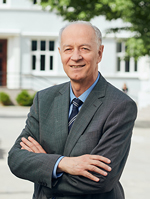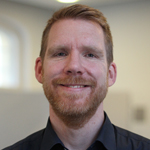Yüksel Kavak
Professor, TED University, Turkey

Dr. Yüksel Kavak, who is an educational administration professor, has various publications on education policies, basic education, higher education, teacher education, Bologna Process and economics of education.
Among his primary studies, Demography and Management towards 2050 in Turkey: Repercussions on Turkish Education System (Turkish Industry and Business Association- TUSIAD and United Nations Population Fund- UNFPA, 2010), which includes long-term tendency projections for pre-school, upper-secondary and higher education levels in Turkey within 2010 and 2050, and Teacher Education and Faculties of Education (with A. Aydın and S. Akbaba-Altun, Higher Education Council, 2007), which presents analyses about the improvements in teacher education between 1982 and 2007, can be emphasized. He also took part in MoNE Teacher Employment Projections, Strategies and Systems Development Project (2013) as a researcher, which covers teacher supply and demand projections till the year 2023, within MoNE-IKOP.
In addition to teaching and research experiences in the university, between the years of 1996 and 2005, he served as a consultant in various educational projects – aiming at extending schooling of girls such as ‘Girls, Let’s Go to School’ and ‘Child-Friendly School’- conducted by MoNE in collaboration with UNICEF, the World Bank and the European Commission. Further, he took part in many professional training activities for educational administrators and supervisors.
He received his Ph.D in Educational Administration, Supervision, Planning and Economics at Hacettepe University in 1986, and worked as a faculty member of the Faculty of Education at Hacettepe University between the years of 1991 and 2017. He held several administrative positions on different levels of the same university, and served as the vice-rector from 2012 to 2015. Besides, he was a visiting professor at Kyrgyzstan-Turkey Manas University during 2000-2002. In the 2007-2008 academic year, he had been a visiting researcher at the University of Memphis, Center for Research in Educational Policy, Tennessee, USA.
He also held positions in TEA (Turkish Education Association) as a Scientific Committee member (2003-2005), in UNESCO as a Turkish National Commission Education Specialization Committee member (2010-2014) and in Turkish Volleyball Federation as an Education Board Coordinator (2006-2007 and 2011-2012). He is still a member of the Accreditation Board in the Association for the Evaluation and Accreditation of the Education Faculty Programs (EPDAD).
David Reimer
Professor, Aarhus University, Denmark

David Reimer is a professor at the Danish School of Education, Aarhus University. His research focus is on social stratification, with a focus on inequalities in access to higher education across class, gender, and ethnic divides. He is also interested in the transition from (higher) education to work. Much of his work has a cross-country comparative perspective. His work has appeared in various international journals such as European Sociological Review, Higher Education, and School Effectiveness and School Improvement.
Social Inequality and Participation in Higher Education: Present findings and future challenges
In this keynote, I will give an overview over the literature on stratification in higher education, dealing in particular with horizontal stratification and inequality of access to different higher education institutions and fields of study. I begin by outlining the theoretical framework normally used to explain the association between socioeconomic background and participation in higher education. Subsequently, drawing on research on European and Anglo-Saxon countries, I discuss the role of institutional stratification, looking at differences between different types of higher education institutions such as university colleges, universities, and undergraduate and graduate degrees. Next, I discuss the growing literature on students’ choice of field of study in higher education before examining processes of cultural differentiation among higher education students. Finally, I point to some recent developments in the field – with particular emphasis on recent intervention studies designed to promote the choice of higher education and to reduce social inequality.
